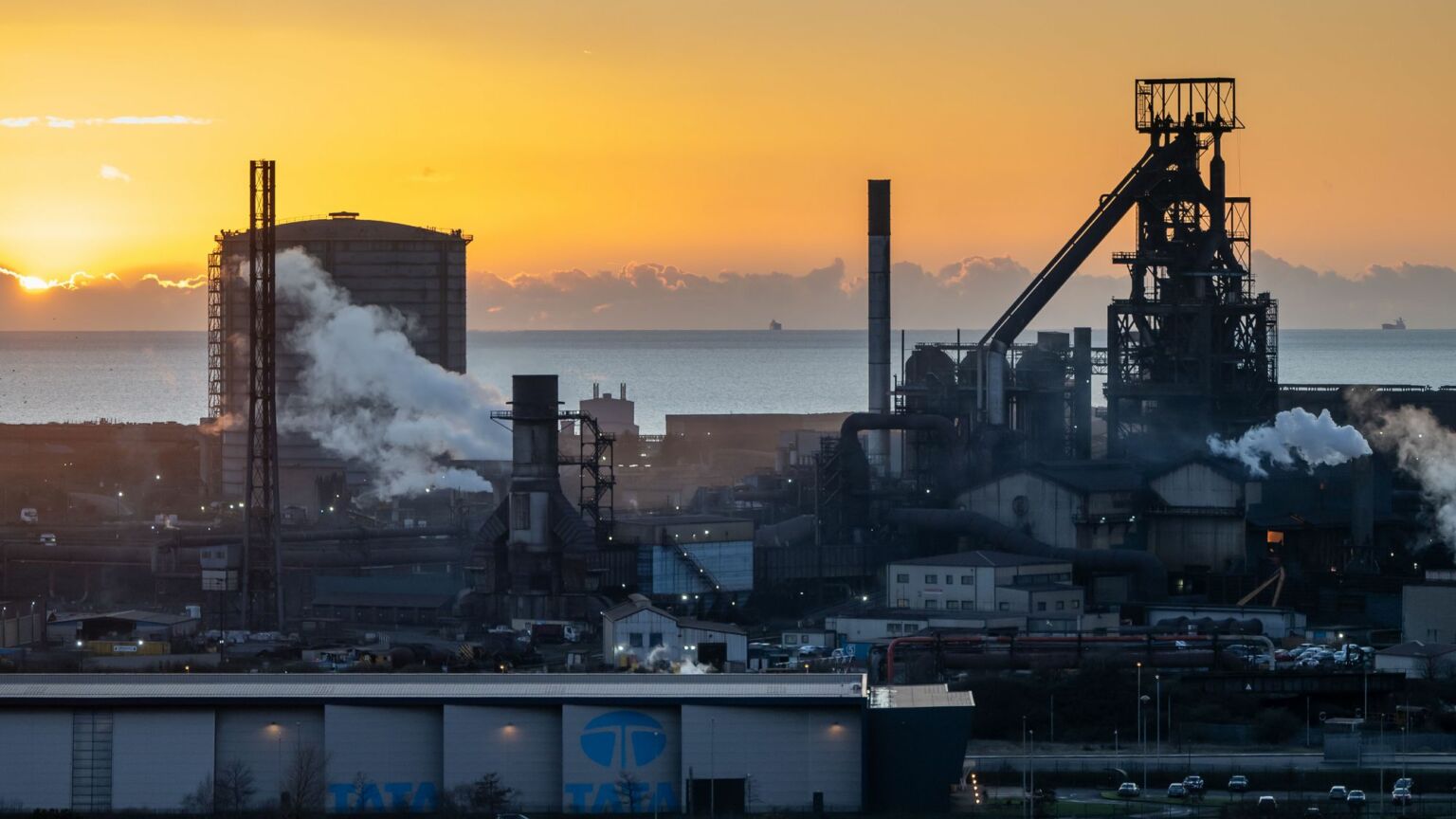Net Zero is killing British industry
Port Talbot steelworks is just the latest casualty of our elites' climate-change crusade.

Want to read spiked ad-free? Become a spiked supporter.
Indian company Tata Steel confirmed last week that up to 2,800 jobs will go at its main site in Port Talbot, Wales. Tata announced that it is to shut down both of its coal-fired blast furnaces and replace them by 2027 with low-CO2 electric-arc furnaces, which will require far fewer staff to operate. The British state is to contribute £500million to the plan, which Tata estimates will cost £1.25 billion in total.
This is not a case of replacing like with like. Port Talbot’s coal-fired blast furnaces make virgin steel, the material on which Britain’s car-manufacturing sector, among other industries, depends. Electric-arc furnaces, however, can’t produce virgin steel, and merely recycle steel instead. The result is steel with a relatively high level of impurities, that may not be of the grade sought, and is unsuitable for heavy-duty sectors such as construction and defence.
Tata’s decision, backed by the government, has had no shortage of critics. Stephen Kinnock, Labour MP for Aberavon, home of the Port Talbot plant, said that it leaves ‘Britain more dependent on imported steel from countries whose governments won’t always have Britain’s best interests at heart’. The unions agree, arguing that relying on imported steel will become an issue of national security in the longer term. As the Independent reports, the decision will leave Britain as the only G20 nation with no first-class steel-production capability.
These criticisms are all very well. But they fail to answer the question of why the UK government seems to be actively pursuing deindustrialisation. As Telegraph columnist Allison Pearson puts it, ‘You might almost get the impression the nation was run by a fifth column plotting its downfall’.
Indeed, as the Port Talbot decision indicates, our elites seem almost determined to stop British industry in its tracks. We’ve seen the government introduce regulatory regimes under which manufacturers of conventional cars will be fined for not making enough electric vehicles. Makers of conventional boilers will similarly be fined if they fail to produce enough electric heat pumps. We’ve heard Labour insist that it will not issue licences to explore new oil and gas fields in the North Sea. And we’ve seen all the main parties unite to ban fracking.
But our elites’ willingness to embrace deindustrialisation, their eagerness to sacrifice jobs and vital industries, is not a fifth-column plot. It is born of their pursuit of the chimerical goal of Net Zero. That’s why our politicians and industry leaders are shutting down our virgin-steel making capacity, and crippling our oil and gas industry. It’s because they genuinely believe that they are leading Britain in an existential battle against a climate apocalypse.
After all, if one believes that the world is about to end unless CO2 emissions are slashed, then one need not be too concerned about putting jobs, or the security of the British nation, at risk. It doesn’t seem to matter that more than 40 per cent of the electricity on which electric-arc furnaces in Britain will rely is today still generated by gas- and coal-fired power stations. It doesn’t seem to matter that the steel imported from China or India will still be made by coal-fired power stations. What is important for our elites is to do something, and to be seen to be doing something about the climate.
For our corporate executives, parliamentarians and civil servants, Net Zero is the goal that trumps all else. It’s time we fought back against their dangerous, irrational designs.
James Woudhuysen is visiting professor of forecasting and innovation at London South Bank University.
Picture by: Getty.
Who funds spiked? You do
We are funded by you. And in this era of cancel culture and advertiser boycotts, we rely on your donations more than ever. Seventy per cent of our revenue comes from our readers’ donations – the vast majority giving just £5 per month. If you make a regular donation – of £5 a month or £50 a year – you can become a and enjoy:
–Ad-free reading
–Exclusive events
–Access to our comments section
It’s the best way to keep spiked going – and growing. Thank you!









Comments
Want to join the conversation?
Only spiked supporters and patrons, who donate regularly to us, can comment on our articles.